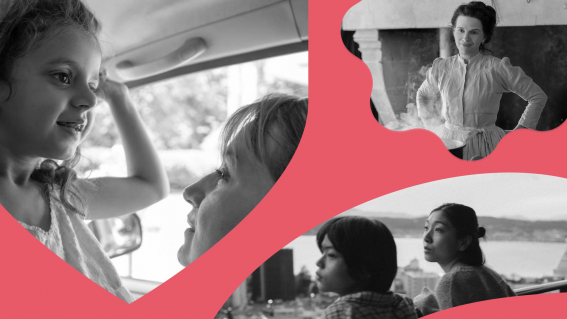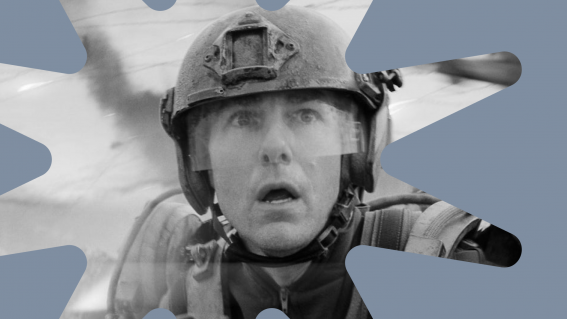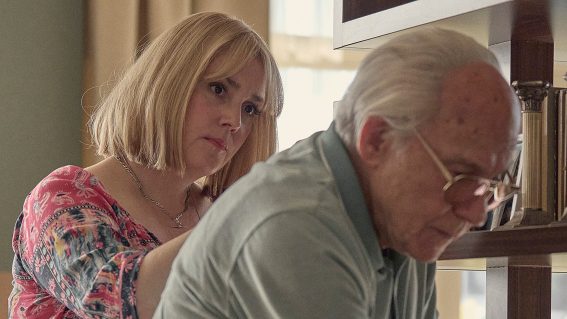Interview with Gurrumul documentary director and Gurrumul’s long-time collaborator
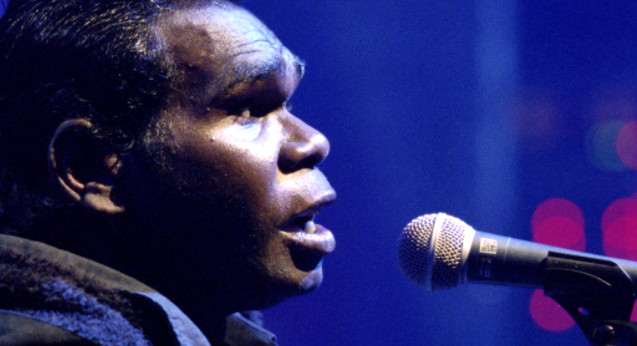
The documentary Gurrumul is a moving tribute to the late artist, described by Rolling Stone as “Australia’s most important voice.” Certain to receive a positive response from audiences and critics, Flicks sat down with the film’s director, Paul Williams, and Gurrumul’s long-time friend collaborator (who also appears in the film) Michael Hohnen.
Gurrumul gave the documentary his blessing, three days before he passed away. Given he was blind, how was the contents of the film communicated to him?
Paul: As we reached milestones in the editing, we’d send Michael an MP4 of the cut and a stereo MP3. Michael would load that onto Gurrumul’s iPod. He had the film as it progressed as audio files, to listen to. We would replace it every couple of weeks. When we got to significant editing milestones, particularly as we approached picture lock, we would send it up and sit down with people, including his partner. A sighted Yolngu person would be sitting next to him, explaining what was going on visually. Saying things like ‘that’s an old picture of your dad on screen’. That kind of thing.
Michael: Also our office is kind of like this drop in centre in Darwin, for a lot of Yolngu. Uncles would float through, see what we were working on, look at bits from the movie and go to talk to him (Gurrumul) about some of the elements. He had a lot of trust, that the way we were presenting him visually was going to be respectful. When his family would see bits of the film, and be able to tell him about that, telling him in (Yolngu) language is much easier and quicker than what we would do. It’s a completely different way of communicating. They have this tangential way of explaining things. Sometimes I’d hear them explaining things and I’d think: that’s nothing to do with what we’re seeing on the screen.
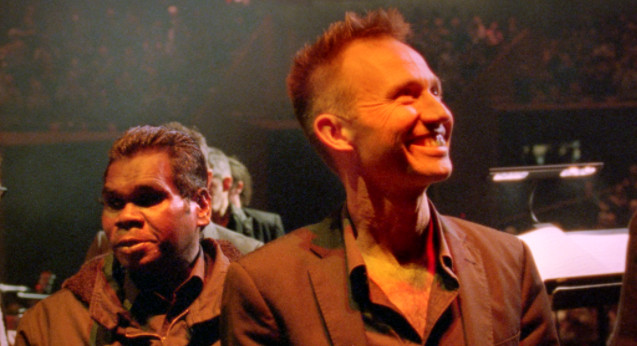
Gurrumul and Michael Hohnen
The film is an important cultural artifact, documenting a great and unique artist. Was the intention to provide a time capsule of Gurrumul?
Paul: Yes, it was. Even though we didn’t track this as a narrative through line, when we started the film his (Gurrumul’s) health was not good, and it deteriorated across the making of the film. I always had the feeling that he wasn’t going to live to a ripe old age, so I really felt an imperative to capture his story when he was still with us. So yes, there was an element of a time capsule about it. I felt a great responsibility to film everything while we was still with us.
Particularly so, given the Yolngu culture’s orientation to the people after they pass away. Speaking about them becomes taboo, and that entire aspect of the film wouldn’t have been possible. There was an imperative to do it in a timely fashion. He wasn’t a well man, in probably the last ten years of his life. The film was not made in the shadow of death, but I was certainly conscious of this all the way through.
Most authorised works – be it films or books – have limitations placed on the artist, by the subject. What were the things out of bounds in this film?
Michael: His private life. I think Paul went to the island once, for a few days, with a whole crew, and he (Gurrumul) stayed inside. You would know when he wanted to be engaged in the film, because he would come out and be part of whatever was going on. It’s a pretty clear sign, if you don’t come out of your house, that at that moment, you are not interested. I think that was probably a $40,000 not interesting cop, for the producers.
Paul: It’s true that there were certain things I couldn’t explore. But I didn’t necessarily want to explore them anyway. That old saying – that a lack of limitations is the death of art – was ringing in my ears the whole way. I mean, I had a subject who was never going to speak through the whole film. That was a much bigger limitation, front and centre – that I couldn’t interview the main subject. So how do I get around that? That was a much bigger hurdle to get around, artistically, than having certain subjects in the film that were taboo.
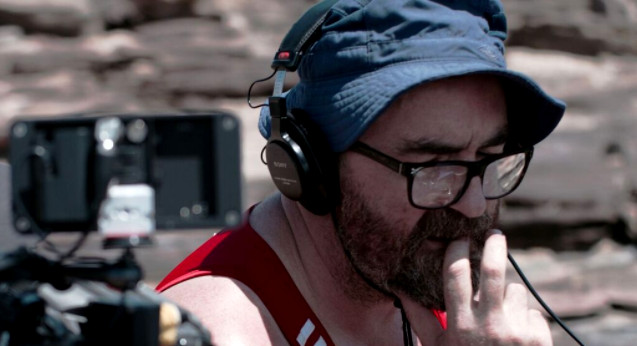
Paul Williams
Paul, do you remember the first time you heard Gurrumul?
Paul: I certainly do. When the first album first came out, before I had anything to do with the project, just as a punter. I was listening to ABC Radio and I thought crikey, what’s that? I just thought it was so beautiful. I was a fan before I got involved. It is such a unique voice. I wondered where it came from; where its soulfulness came from. Making the film was an opportunity for me to go on a journey of discovery to find out what was behind that mesmerising, angelic voice.
Find times and tickets for Gurrumul

